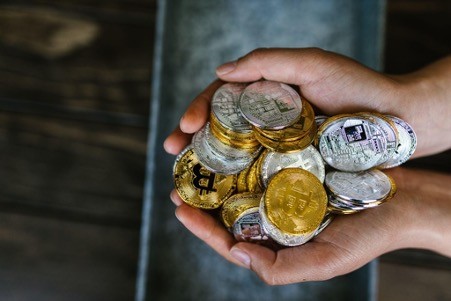Five Cryptocurrency Scams to Watch Out for in 2022
Nov 16, 2022, 7:36pm
Since the cryptocurrency world is widely unregulated, there are opportunities for scammers to capitalize and trick investors out of their crypto.
Scammers, phishers, fraudsters, swindlers. Whatever you want to call them, they’re everywhere, lurking around the corners of the internet and using various tactics to steal from their victims. Wherever money is, the scammers will swarm to it like flies, and cryptocurrency is no different.
Since the cryptocurrency world is widely unregulated, it gives more opportunities for scammers to capitalize on investors and trick them out of their crypto. Despite crypto being relatively ‘new’, scammers will still use old methods to deceive users, such as phishing, ‘romance’ scams, and blackmail. However, there are some crypto-specific tactics that scammers are using to profit from their targets. To avoid being a scammer’s next victim, you need to be aware of the most common scams in the cryptocurrency space!
Source: Pexels
What Is a Crypto Scam?
A crypto scam is a financial scam where scammers try to steal crypto holdings from victims. This is achieved through either tricking users into voluntarily giving away their wallet account details, persuading them to send crypto assets across, or outright attempting to steal private keys through malicious links, websites, and emails.
Common Crypto Scams That You Should Avoid
There are plenty of swindlers in the crypto community that are praying on unsuspecting victims. Here are five common forms of cryptocurrency scams that you should be aware of and know how to avoid:
1) Phishing Scams
As the most popular form of crypto scam, phishing has become more sophisticated and abundant than ever in recent years. Scammers aim to lure users into giving away sensitive details such as their crypto wallet keys. They will do this by sending mass emails or messages with links to fake websites. Once you’ve linked on a link, the scammer can then proceed to steal your account details.
Alternatively, you’ll be led to a malicious website that has been set up to mimic an official one, tricking you into inputting your crypto wallet information and private keys. Once phishers gain access to your wallet, there’s little that you can do to stop them from stealing all your crypto, so this scam is especially important to avoid.
How to avoid it
Learning to recognize phishing emails is important so that you don’t fall into a scammer’s trap. The most obvious indicator of a phishing email is spelling or grammatical mistakes since phishers are usually in a hurry and tend not to proofread their messages. Additionally, if an email address ends with a public domain such as “@gmail.com,” it is likely not to be from a legitimate source. Scammers will often attempt to impersonate an official company and will copy content such as color schemes, logos, and fonts. Therefore, it’s a good idea to familiarise yourself with well-known brands to easily spot any copycats.
However, the general rule that you should follow is to never click on any links that are sent to you through an email, instant message, or text. If you believe it’s from a legitimate source, then you should type the website address directly into your browser and complete any accounts through there rather than click the link itself. After all, it’s much better to be safe than sorry!
2) Fake Broker Scams
This scam consists of a scammer contacting investors and pretending to be a registered broker. The scammer will attempt to persuade these investors to send them money and will claim to invest it into crypto coins on their behalf. Once the scammer receives this money, they will disappear and move on to their next victim. These fake broker scams may seem obvious but they can still fool many traders, especially those who are new to the crypto world.
This type of scam is similar to the notorious ‘romance scam’ where victims believe they are in a romantic relationship with someone overseas but are actually being tricked by scammers. Once trust has been built, the scammer will ask their victim to wire them money to repair their car, pay for hospital bills, or other financial emergencies.
How to avoid it
If you are contacted by anyone who claims to be a registered broker, then it’s best to avoid them altogether. Suppose you’re interested in using a real, licensed broker. In that case, you can head to a popular crypto platform that has built up a solid reputation, such as Coinbase, Bitcoin Loophole, and Uphold, that will connect you with top-tier brokers from all around the world.
These platforms are fantastic for beginner traders who require guidance when getting started with their crypto portfolio or even experienced investors who want to improve their trading strategy. This is a much better and safer alternative to responding to an unknown broker who may either be a scammer or simply does not have your best interests in mind.
3) Giveaway Scams
A giveaway scam is when a scammer claims to send winners of a ‘giveaway’ large amounts of cryptocurrency. This usually consists of a post on platforms such as Instagram, YouTube, Facebook, and Twitter that includes how much crypto is on offer. These scammers will tell winners that they need to send them a small amount of crypto to verify themselves and receive their reward. After the scammer has received this small crypto payment, they will ignore or even block the user and move on to their next victim. Often, these giveaways will be promoted by fake celebrity social media accounts to lure in more users and make the post seem more legitimate.
How to avoid it
For a start, you should be extremely skeptical when using social media. Always double-check accounts on platforms such as Twitter and Instagram to make sure that the user is who they say they are. Also, keep in mind that real celebrity accounts are usually verified (check for the blue tick) and have a large number of followers.
Another good rule to follow is that if something seems too good to be true, then it probably is. If a small social media account offers large amounts of crypto, you should always question why they are doing this. Most of the time, online giveaways are scams, especially those that push a sense of urgency. Also, if you’ve been contacted and told that you’ve won a giveaway that you haven’t even entered, then it’s safe to say that they are trying to scam you.

Source: Pexels
4) Pump-and-Dump Scams
For this type of scam, fraudsters will hype up a particular coin through various social media accounts to persuade traders to invest in the coin. After the coin’s price has been driven up, these scammers will then sell their holdings, causing the value to then plummet. Any victims who have invested in their coin after giving in to the hype will experience losses as the coin will no longer hold any significant value.
This type of crypto scam relies on potential victims experiencing a fear of missing out (known as FOMO). FOMO is when traders make irrational investment decisions fueled by their emotions rather than logic.
How to avoid it
Always try to ignore FOMO and never invest impulsively to avoid falling for a pump-and-dump scam. You should also always do independent research before investing in coins, especially for those that have unexpectedly skyrocketed or seemingly appeared out of nowhere.
Even if a mooning coin is not a result of a pump-and-dump scheme, it still doesn’t mean you should blindly sink your money into it. Just because other investors have experienced significant profits from a coin that has soared in a short time doesn’t mean that you will, too. If investors are suddenly raving about a new coin and claiming that it’s a once-in-a-lifetime investment that could make you rich, then they’re probably trying to scam inexperienced or impulsive traders.
5) Blackmail Scams
Blackmail is another tactic that scammers use to steal crypto from investors. They will send emails and messages claiming that they have compromising or embarrassing photos, videos, or information about their target. Sometimes scammers will inform a trader that they have a record of them visiting illicit websites or have a direct live stream from their webcam. The scammer will threaten to expose them and spread this information unless the user sends them crypto or shares their private keys.
This type of scam plays on the victim’s emotions and scares them into paying the ransom. Users are more likely to receive emails that threaten blackmail if their credentials have been leaked in a data breach. Scammers will try and convince the user that they do have access to sensitive information and will include any login details (such as old passwords) that have been leaked to ‘prove’ that they can blackmail them.
How to avoid it
Never, under any circumstances, share your private keys or send them crypto, no matter how demanding they are. Instead, you should delete the message, block the sender, and report them to a fraud website. Even if you do pay the scammer’s ransom, they probably won’t leave you alone. Instead, they’ll see you as an easy victim and will continue to demand more crypto. Additionally, if a scammer tells you that they have your login credentials, then you should update your passwords on all online accounts and enable two-factor authentication where possible. Most importantly, you need to stay calm. Scammers will do whatever they can to trigger you and make you scared enough to take the bait, but really they are just bluffing you.

Source: Unsplash
To Conclude
Now you know some of the most common scams in the crypto industry. This should help you to avoid falling into a scammer’s trap and losing your crypto holdings. Some key points to remember are –
- If it seems too good to be true, then it probably is
- Refrain from clicking on any links on social media posts or through emails
- Never share your crypto wallet keys with anyone
- Try to avoid FOMO
- Always remain skeptical when it comes to giveaways
If you’re ever in doubt, then it’s best to stay on the cautious side. Missing out on a giveaway, mooning coin, or other ‘opportunities to make a profit’ is not the end of the world, but if you take a risk and end up falling for a scam, then you could end up losing your entire crypto portfolio. Stay safe!





